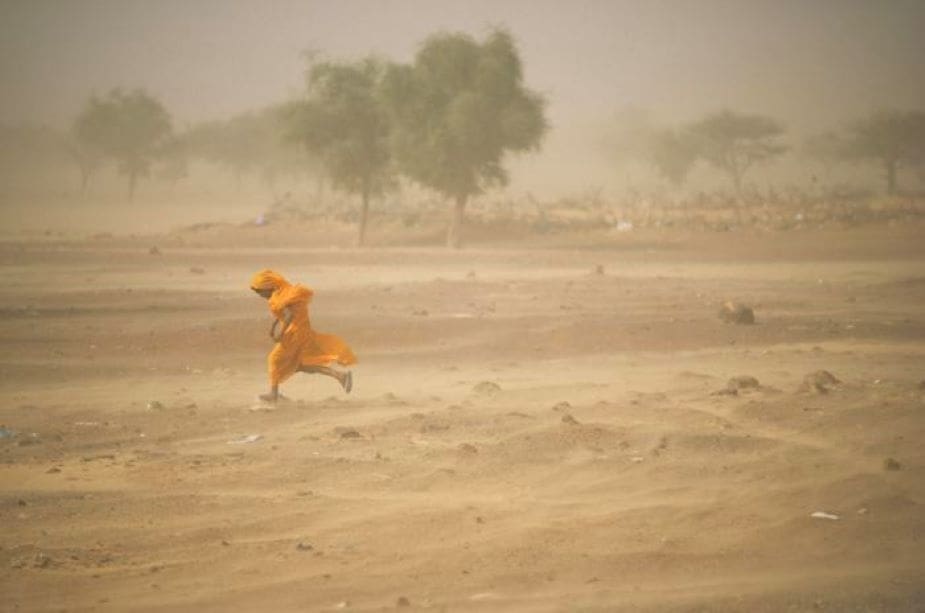Summary:
Transforming the way the world produces, consumes, and manages food is essential to halt and reverse worsening land degradation, according to a study published in Nature. The work, authored by 21 scientists, sets out a coordinated plan to “bend the curve” of land loss by 2050 through three major measures: cutting food waste by 75 per cent, restoring half of degraded land, and maximising sustainable ocean-based food production. Together, these actions could spare or restore 43.8 million square kilometres of land – an area larger than Africa – while delivering major benefits for climate stability, biodiversity, and human health.
Lead author Fernando T. Maestre of the King Abdullah University of Science and Technology described the recommendations as “a bold, integrated set of actions” addressing climate change, biodiversity loss, and land degradation simultaneously. The proposals include shifting subsidies to sustainable smallholder farmers, improving food storage and transport in developing regions, encouraging dietary shifts towards sustainable seafood, and implementing policies to curb food waste at every stage of the supply chain. Co-author Barron J. Orr, Chief Scientist at the UN Convention to Combat Desertification, warned that land degradation “isn’t just a rural issue,” but one that touches “the food on all our plates” and global stability.

Overhaul global food systems to avert worsening land crisis
In Nature, 21 leading scientists prescribe ways to use food systems to halt and reverse land degradation, underlining that doing so must become a top global priority to mitigate climate change and stop biodiversity loss.
The article breaks new ground by quantifying the impact by 2050 of reducing food waste by 75 per cent and maximising sustainable ocean-based food production, measures that alone could spare an area larger than Africa.
According to the paper: “Food systems have not yet been fully incorporated into intergovernmental agreements, nor do they receive sufficient focus in current strategies to address land degradation. Rapid, integrated reforms focused on global food systems, however, can move land health from crisis to recovery and secure a healthier, more stable planet for all.”
The authors underline especially the importance of halting food waste and sustainably managing lands, and suggest an ambitious but achievable target of 50 per cent land restoration for 2050 (currently 30 per cent by 2030).
And, they emphasize, the measures outlined would enormously co-benefit the climate, biodiversity, and global health.
Says lead author Fernando T. Maestre of the King Abdullah University of Science and Technology (KAUST), Saudi Arabia: “This paper presents a bold, integrated set of actions to tackle land degradation, biodiversity loss, and climate change together, as well as a clear pathway for implementing them by 2050.”
“By transforming food systems, restoring degraded land, harnessing the potential of sustainable seafood, and fostering cooperation across nations and sectors, we can ‘bend the curve’ and reverse land degradation while advancing towards goals of the UN Convention to Combat Desertification and other global agreements.”
Adds co-author Barron J. Orr, UNCCD’s Chief Scientist: “Once soils lose fertility, water tables deplete, and biodiversity is lost, restoring the land becomes exponentially more expensive. Ongoing rates of land degradation contribute to a cascade of mounting global challenges, including food and water insecurity, forced relocation and population migration, social unrest, and economic inequality.”
“Land degradation isn’t just a rural issue, it affects the food on all our plates, the air we breathe, and the stability of the world we live in. This isn’t about saving the environment, it’s about securing our shared future.”
Key recommendations:
1. Restoring 50 per cent of degraded land through sustainable land management practices would correspond to the restoration of 3 Mkm² of cropland and 10 Mkm² of non-cropland, a total of 13 Mkm².
Land restoration must involve the people who live on and manage the land – especially Indigenous Peoples, smallholder farmers, women, and other vulnerable people and communities, the article says.
To support them, the authors recommend:
- Support for small farmers: Most of the world’s food is grown by small and family farms. The paper calls for shifting agricultural subsidies from large-scale industrial farms toward sustainable smallholders, incentivizing good land stewardship among the world’s 608 million farms, and fostering their access to technology, secure land rights, and fair markets
- Land-based taxes or tariffs: To reward sustainable farming and penalize polluters
- Environmental labeling: So consumers can make informed, planet-friendly food choices
- Better data and reporting: To track emissions and land use impacts
2. Reduce food waste by 75 per cent: An estimated 56.5 Mkm² of agricultural land (cropland and rangelands) are used to produce food, and roughly 33 per cent of all food produced is wasted (14 per cent lost post harvest at farms; 19 per cent at the retail, food service and household stages).
Reducing food waste by 75 per cent, therefore, could spare roughly 13.4 Mkm² of land.
The authors highlight key measures to remedy this, including:
- Policies to prevent overproduction and spoilage
- Ban food industry rules that reject “ugly” produce
- Encourage food donations and discounted sales of near-expiry products
- Education campaigns to reduce household waste
- Support small farmers in developing countries to improve storage and transport
They note new legislation in Spain requiring stores to donate or sell surplus food, restaurants to offer take-home containers, and all actors across the food supply chain to implement formal food waste reduction plans.
3. Integrate land and marine food systems: Red meat produced in unsustainable ways consumes large amounts of land, water, and feed, and emits significant greenhouse gases. Seafood and seaweed are sustainable, nutritious alternatives. Seaweed, for example, needs no freshwater and absorbs atmospheric carbon. Responsible aquaculture – focusing on low-impact species like mussels and seaweed-derived products – can reduce pressure on land. The authors recommend:
- Replacing 70 per cent of unsustainably produced red meat to sustainably sourced seafood, such as wild or farmed fish and mollusks. Doing so would spare 17.1 Mkm² of land currently used for pasture and livestock feed
- Using sustainably sourced seaweed-derived products as a vegetable substitute – replacing just 10 per cent of global vegetable intake with seaweed-derived products could free up over 0.4 Mkm² of cropland.
These changes are especially relevant for wealthier countries with high meat consumption. In some poorer regions, animal products remain crucial for nutrition.
Total land spared by food system-related measures 2 and 3: ~30.9 Mkm², an area roughly equal to Africa.
The combination of land restoration, food waste reduction, and dietary shifts, therefore, would spare or restore roughly 43.8 Mkm² in 30 years (2020-2050).
The proposed measures combined would also:
- Contribute to emission reduction efforts by mitigating roughly 13 Gt of CO₂-equivalent per year through 2050.
- Co-benefit biodiversity by improving habitat quality and ecosystem functioning, and avoiding the conversion of remaining natural ecosystems to cropland, and
- Help the world community achieve its commitments in several international agreements, including the three Rio Conventions (climate, biodiversity and desertification), the Sustainable Development Goals and others
Coordinated action among the Rio Conventions
The authors call for the UN’s three Rio conventions – UNCCD, CBD and UNFCCC – to unite around shared land and food system goals and encourage the exchange of state-of-the-art knowledge, track progress and streamline science into more effective policies, all to accelerate action on the ground.
Land and food systems play a key role in advancing towards the goals and targets of the three conventions and the Sustainable Development Goals, they say.
The authors call on Parties to all three Rio conventions to promote multilateral actions on land and food systems in a coordinated and collaborative manner. UNCCD’s 197 Parties, at their most recent Conference of Parties (COP16) in Riyadh, Saudi Arabia, have already adopted a decision on avoiding, reducing and reversing land and soil degradation of agricultural lands.
Journal Reference:
Maestre, F.T., Guirado, E., Armenteras, D. et al., ‘Bending the curve of land degradation to achieve global environmental goals’, Nature 644, 347–355 (2025). DOI: 10.1038/s41586-025-09365-5
Article Source:
Press Release/Material by United Nations Convention to Combat Desertification (UNCCD)
Featured image credit:




